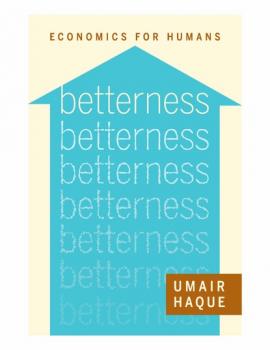ТОП просматриваемых книг сайта:
Umair Haque
Список книг автора Umair HaqueАннотация
In this manifesto-style book, radical economist and strategist Umair Haque calls for the end of the corrupt business ideals that exemplify business as usual. His passionate vision for «Capitalism 2.0,» or «constructive capitalism,» is one in which old paradigms of wasteful growth, inefficient competition, and self-destructive ideals are left far behind at this reset moment. According the Haque, the economic crisis was not a market failure or even a financial crisis, but an institutional one.Haque details a holistic five-step plan for both reducing the negative and exploitive nature of the current system and ensuring positive social and economic growth for the future. Haque calls for a reexamination of ideals, and urges business away from competition and rivalries and toward a globally-conscious and constructive model–and a constructive future. Haque argues that companies must learn to orient their business models around:– renewal in order to maximize efficiency- equity in order to maximize productivity- meaning in order to maximize effectiveness- democracy in order to maximize agility- peace in order to maximize evolvabilityThese new business ideals focus on the human element – not profit exclusively – and are easily tailored for any size or type of business, as long as they are willing to make bold and sustained changes to the current system.
Аннотация
Betterness: Economics for Humans is a powerful call to arms for a post-capitalist economy. Umair Haque argues that just as positive psychology revolutionized our understanding of mental health by recasting the field as more than just treating mental illness, we need to rethink our economic paradigm. Why? Because business as we know it has reached a state of diminishing returns—though we work harder and harder, we never seem to get anywhere. This has led to a diminishing of the common wealth: wage stagnation, widening economic inequality, the depletion of the natural world, and more. To get out of this trap, we need to rethink the future of human exchange. In short, we need to get out of business and into betterness.HBR Singles provide brief yet potent business ideas, in digital form, for today's thinking professional.


